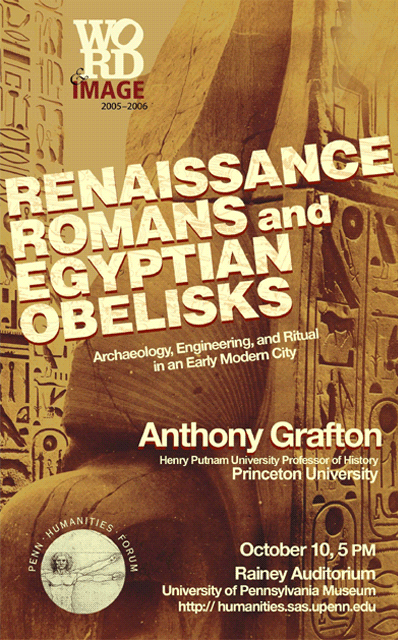Rome is the obelisk capital of the world. Renowned Princeton historian Anthony Grafton considers how the massive obelisks of ancient Rome were brought to life there by the inscriptions, narratives, and poems wrapped around them.
Anthony Grafton has been called an "alchemist of erudition," a prolific, engaging intellectual historian whose ability to bring the past alive has earned him the respect of his peers and public alike. His scholarly specialty is the study of scholars who didn't specialize: the great polymaths, Renaissance virtuosos, and early-modern encyclopedists. He also writes regularly for The New York Review of Books, The American Scholar, The New Republic, and other publications.
In his wide-ranging body of work, Prof. Grafton recreates lost worlds of knowledge, uncovering what one reviewer called the "secret passions lurking in some of the most arid-sounding studies the mind can imagine." His many books include a profound study of the scholarship and chronology of Joseph Scaliger, the foremost classical scholar of the late Renaissance, and From Humanism to the Humanities, a revisionist account (with Lisa Jardine) of the significance of Renaissance education. In what some consider his most original and accessible book, The Footnote: A Curious History, one comes to fully appreciate why, as he observes, footnotes have the same effect on a scholar as clover on a pig.
His many honors include Europe's Balzan Prize in 2002 for History of the Humanities, the Mellon Foundation Distinguished Achievement Award in 2004, and fellowships from the Guggenheim Foundation and the Wissenschaftskolleg zu Berlin. His current book projects include a study of the original Dr. Faustus (Penguin).
Henry Putnam University Professor of History, Princeton University



